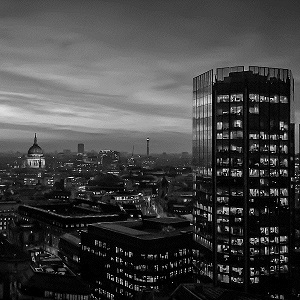Equal aspiration: The London test
When Aneurin Bevan died in 1960, a Conservative MP wrote in the Evening Standard that his passing reflected the Labour party’s failure to respond to a changing social reality: “In the coalfields from which he came, Marx and Engels have...
When Aneurin Bevan died in 1960, a Conservative MP wrote in the Evening Standard that his passing reflected the Labour party’s failure to respond to a changing social reality: “In the coalfields from which he came, Marx and Engels have been supplanted by Marks & Spencer, and the sound of class war is being drowned by the hum of the spin-dryer. There will be no more Aneurin Bevans.”
Despite the achievements of the post-war Labour government, which heralded the creation of the NHS, the welfare state and a Conservative acceptance of these as norms until the mid-1970s, Labour could not muster election victory between 1951 and 1964. The party’s lack of success led many to ask: “must Labour lose?”
The historian Pat Thane blames washing machines for Labour’s woes. In 1942, 3.6 per cent of UK households owned a washing machine, two decades later it was 64 per cent. However, the Labour party struggled to relate to this growth of affluence. Its leaders saw conspicuous consumption as being at odds with the party’s egalitarian ideals. Their speeches openly attacked people’s desire for cars, vacuum cleaners, TV sets, hire purchase and washing machines, something, which Thane argues, particularly alienated working-class and women voters.
50 years later, Labour’s problem hasn’t gone away. Whilst the 2012 Olympic opening ceremony showed the British people’s affection for Bevan’s NHS has survived, so too has our love for the modern equivalent of spin-dryers: iPads and flat screens. The party’s perennial challenge has been how to reconcile an increasingly consumerist, individualistic populace with its ideological commitment to a more equal society.
The public don’t doubt Labour’s desire to eliminate poverty and tackle injustice. But whether through its derision of spin dryers or more recently the language of the ‘mansion tax’ and Corbynite Asceticism, the party has allowed the impression to form that it looks down on those wanting to improve their lot.
Ed Miliband was right to identify the reduction of inequality as the defining political and economic challenge of our time. In terms of income, wealth, health and education, Britain has become more unequal that at any time since the 1920s. The living standards of low and middle income families have stagnated for decades, with little prospect of these households sharing in rising prosperity in the coming years. With cuts to social security and growing earning disparity between top earners and the rest, social mobility is a pipe dream and children’s life chances are primarily determined by who their parents are.
Yet rather than believing it needs to choose between the pursuit of equality and aspiration, Labour should argue that the two necessarily go hand in hand. To realise the aspirations of the majority of ordinary people we need far greater social and economic equality. Indeed, even whilst eschewing the trappings which voters normally associate with ‘aspirational’ politicians, Jeremy Corbyn himself hinted at an understanding of aspiration explicitly linked to equality. The best line in his first conference speech as leader was that “you don’t have to simply take what you’ve been given”, and this posited a theme to which the party should return. It is a politics which recognises individuals’ desire for personal advancement, whatever one’s social background, whilst insisting that can only be achieved with a role for government in creating greater social and economic equality.
The London test
Nowhere better encapsulates the challenges for Labour presented by aspiration and inequality than London. London’s elections in 2016 will provide one of Labour’s first big electoral tests this parliament. Britain’s global city has become a byword for diversity, ambition, cultural and economic liberalism. It is the most affluent place in the UK but also the most unequal.
Perhaps no one personifies the themes of aspiration and equality better than Labour’s mayoral candidate, Sadiq Khan. The story of the bus driver’s son growing up on a south London council estate before graduating, running a law firm and serving in the cabinet is repeated in every leaflet, every press release and policy announcement. The migrant story is by definition one of aspiration; the story of those who uproot themselves in search of a better, more comfortable life and one which resonates with millions of Londoners.
However, it is a story that only works in a more equal society. As Khan himself contends “my parents were only able to fulfil their dreams because there was support. A council home so they could save to buy for a deposit of their own. Fantastic local state schools, affordable university places …We must show that security and equality are the only path to real economic growth.”
The disconnect between people’s aspirations and an unequal reality is being played out most starkly in the context of London’s housing crisis. The growth of London (the population reached a peak of 8.6 million at the start of 2015 and is expected to hit 10 million by the 2030s) has made housing in the capital impossibly expensive. Homes now cost 12 times the median salary, whilst the lack of social and affordable housing means that the average age of the first time buyer is now almost 40. Many of these are people are armed with a good education and the social expectations that go with it, yet have no prospect of leaving ‘generation rent’. The average London tenant spends about half of the median take-home pay on rent in poor quality, insecure and temporary housing. This in turn is leading to less stable communities and forcing younger people and lower income families out of the capital. The lack of affordable housing is also problematic for businesses which face a growing struggle to recruit and retain skilled workers.
The upshot is that London is fast becoming a city for the very poor, who continue to be housed in what is left of London’s social housing and can’t afford to move, and the very rich. This extreme inequality not only threatens the social diversity which makes London great, it damages personal aspiration.
The Conservative response to the crisis has been to leave the lack of housing supply to a failing market. Under Boris’ tenure London’s social housing has steadily made way for luxury developments, whilst the definition of affordable housing has been set out of the reach of average earners at 80 per cent of market rent. Where the government has intervened, it has pursued damaging policies such as extending Right to Buy to housing association homes. Like its 1980s predecessor, which brought local authority house building to a shuddering halt, the policy dangles the hope of home ownership to a select lucky few whilst reducing the number of affordable homes for everyone else.
Labour should expose the emptiness of Tory rhetoric on aspiration. Resisting attacks on consumption, or even cheap shots at Zac Goldsmith’s inherited wealth, it should focus, as Khan’s campaign has begun to do, on setting out genuinely radical social policies aimed at increasing equality and meet people’s dreams of a better life. Plans for social and affordable house building on publicly-owned land and the introduction of a new ‘London living rent’, linked to incomes rather than the market, are a start. Insisting on a minimum of 50 per cent affordable housing in any new housing development should not be portrayed as a developers’ tax but as a means of helping businesses retain the key workers they need.
In short, the idea that ‘aspiration’ is not just for John Lewis shoppers but for everyone should not just be part of Labour’s rhetoric but fundamental to its entire policy offer. This is not only relevant to London. As the party debates the challenges of knitting together support from voters in working class areas, cosmopolitan voters in urban areas and increasingly in Middle England’s swing seats, it should remember that working class communities are as aspirational, as desirous of decent homes, job opportunities and consumer goods, as the city slickers.
Whilst political commentators and party observers are fond of remarking on London’s growing separateness, there is an argument that many parts of the country are in fact becoming more like London, more aspirational, more diverse and more unequal. The Economist’s Bagehot columnist, Jeremy Cliffe, has written of the “Londonisation of Britain” brought about by long-term demographic trends, including mass immigration, the suburbanisation of immigrant communities, the expansion of university education and the realignment of the economy towards service industries.
If that is right then the tendency towards the creation of a more ethnically diverse, upwardly mobile, socially and economically liberal society means that how Labour shapes its political offer for London doesn’t just matter for the capital. A politics aimed squarely at tackling inequality in order to fulfil popular aspiration makes wider electoral sense. Without winning again in 2016, Labour cannot begin address the deepening inequalities gripping London and the rest of Britain. We must make the argument that in a society where the rungs of the social ladder are too far apart it is simply not possible for people, whether working class, middle class or from any other background, to take the next step. Labour must marry the aims of equality and aspiration not just because it is good politics but because it is what we believe in.
Sarah Sackman is a public and environmental lawyer, and was Labour’s candidate in Finchley and Golders Green
This piece appears in the winter edition of Fabian Review

